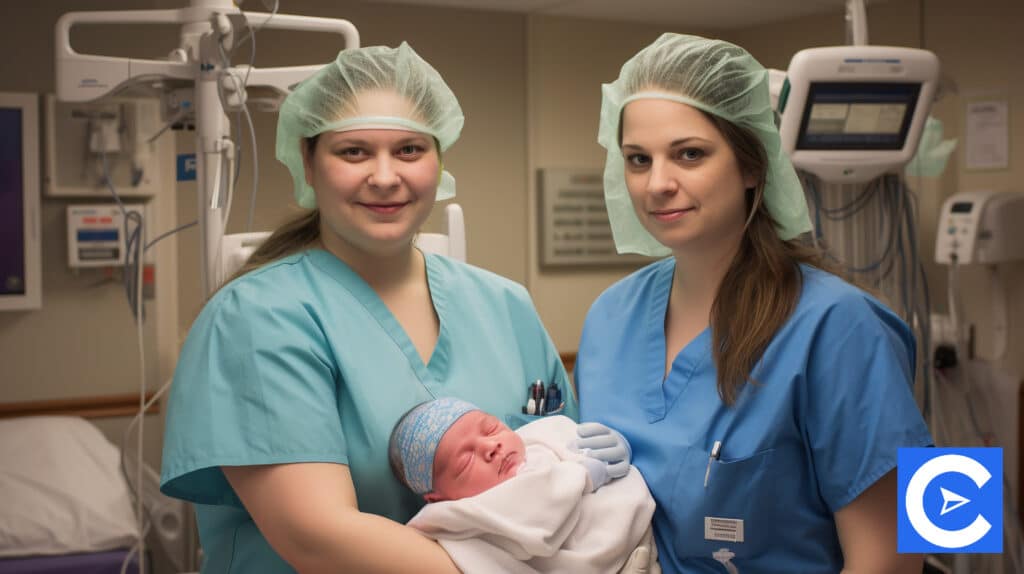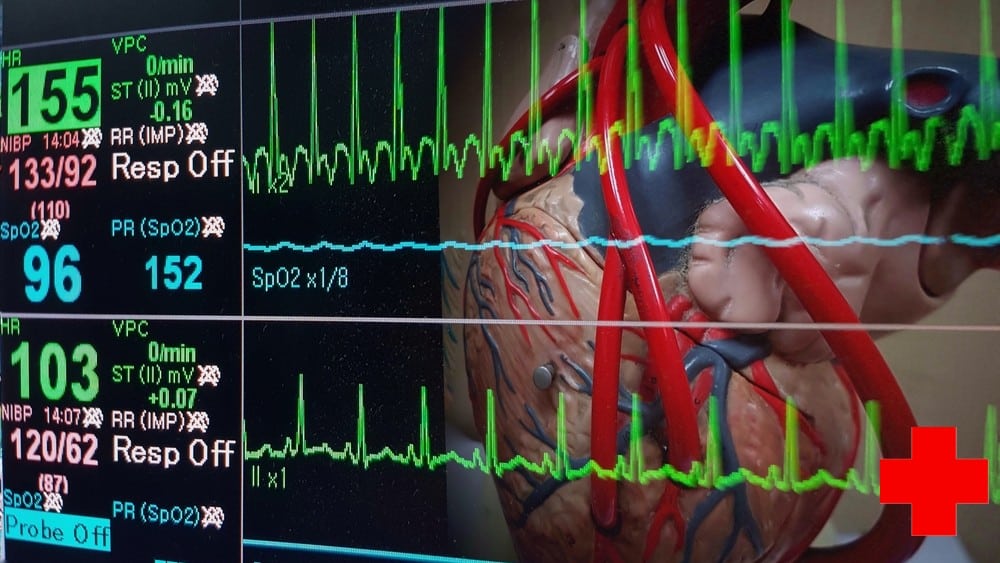Welcome to another educational article comparing Neonatal Intensive Care Unit Nurses and Nursery Nurses!
In this piece on NICU Nurse vs Nursery Nurse, you will learn the differences between NICU Nurses to Nursery Nurses, educational and licensing requirements, how to choose either as a career path and more.
This article avails you the opportunity to understand everything about them.
The following and more are discussed in the article:
- NICU Nurse vs Nursery Nurse – Overview
- Scope of Practice
- Nursing Education and Licensing
- Workplace Environments
- Salary and Job Outlook
So, let’s roll!
NICU Nurse vs Nursery Nurse – Overview

Many people like children, but caring for them on a regular basis needs certain skills.
Because newborns are vulnerable, they require round-the-clock nursing care.
As a result, Nurses with infant-care skills and experience must give even more specialized nursing care to unwell newborns.
The Nursery Nurse’s tasks are comparable to those of the NICU Nurse.
A Neonatal Intensive Care Unit Nurse, often known as a NICU Nurse, is a healthcare professional who looks after newborns and infants who need the most attention.
Nurses that specialize in this sector typically work in hospitals or facilities that have specific equipment for caring for premature infants or newborns with medical issues.
Nurses in the Neonatal Intensive Care Unit (NICU) are specially trained to care for newborns who were born prematurely or who had medical problems that required constant monitoring, expert treatment, or surgery.
Nurses who work in Neonatal Intensive Care Units (NICUs) usually work in level III or IV nurseries.
A Nursery Nurse, also known as a Neonatal Nurse, is a trained professional responsible for the care of newborns and babies who are not admitted to the Intensive Care Unit.
They offer regular post-natal care as well as specialized nursing care for some special-needs neonates and infants, although they occasionally treat severe conditions.
Instead, if newborns or infants develop problems that could lead to life-threatening infections, they are typically sent to critical care nurseries for additional treatment.
Despite the fact that Nursery Nurses do not actively treat challenging cases, they are well-equipped to handle many of them and can recognize and respond swiftly when necessary.
Scope of Practice

Regular screenings and assessments, as well as more complicated treatments and procedures, may be provided by NICU Nurses.
They may, for example, measure blood oxygenation, pulse, and blood pressure using breathing devices.
Incubators, ventilators, and surgery may be required for infants in the NICU.
NICU Nurses may also help in infant surgeries like heart surgery for neonates with congenital heart defects.
NICU Nurses also connect with their patients’ families on a regular basis to update them on their baby’s condition.
Nurses, on the other hand, are routinely called upon to do health checks and newborn screenings.
They’re also responsible for determining whether a newborn’s condition warrants the intervention of Intensive Care Doctors and Nurses.
Nurses in the nursery speak with their patients’ families on a regular basis to keep them up to date on their current condition.
To assess, treat, and monitor the health of infants, the Nursery Nurse may collaborate with professionals such as Obstetricians and Delivery Nurses.
Nurses in Neonatal Intensive Care Units (NICUs) or newborn nurseries typically care for newborns.
NICU nursing, on the other hand, can start in the delivery room or at the mother’s bedside, depending on the situation.
Nursing Education and Training

To become a Registered Nurse, all Neonatal Nurses must first complete a two-year associate’s degree (full-time) or a four-year bachelor’s degree (Bachelor of Science in Nursing-BSN).
As a result, Nursery Nurses’ and NICU Nurses’ nursing programs may range in complexity and expertise.
NICU Nurses, for example, may research heat regulation, body minerals in relation to electric charges, feeding, and baby nutrition.
Oxygenation, pharmaceutical therapy, pharmacological ideas, and developmental care are some of the other topics that may be discussed.
A few of these programs are also open to Nursery Nurses.
However, they might not have the appropriate educational background to work in newborn critical care units right after graduation.
They may research subjects such as patient safety, risk assessment, physical and gestational age assessment, ethics, and professional practice standards.
Nurses in the nursery are taught how to detect common ailments, give routine treatments, and recognize when newborns and infants need specialized attention.
Nurses who work with premature babies sometimes obtain specialized nursing degrees that involve training in the care of premature babies.
Many Nursery Nurses may shift to NICU nursing as their skills and experience increase.
Nurses at the Neonatal Intensive Care Unit (NICU) have a lot of expertise with healthy babies and have been trained to care for special needs patients.
They may also have surgical experience, advanced life support knowledge, and competence in neonatal resuscitation.
Certification and Licensure

Nursery Nurses and Neonatal Intensive Care Unit Nurses can earn a variety of certifications to increase their knowledge and skills in their field.
Nurses in the Neonatal Intensive Care Unit are frequently certified in the Neonatal Resuscitation Program, Pediatric Advanced Life Support, and STABLE neonatal post-resuscitation stabilization, among other things.
When working as a level I or II Nursery Nurse, it is possible that they will not be required to provide care for severe patients, and as a result, they will not be required to obtain these credentials.
Workplace Environments

Nurses at the level I nurseries, often known as well-baby nurseries, are regularly hired to work in these facilities.
The neonates in this nursery may have been born at or about 35 weeks, which is known as a late-preterm delivery.
In the majority of situations, newborns in these environments can acquire milk from traditional sources and can even breathe on their own in some cases.
Nursery Nurses are occasionally employed by level II nurseries, which are also known as special care nurseries.
In level II nurseries, on the other hand, newborns may require regular monitoring to ensure that their conditions remain stable.
Neonatal Critical Care Nurses, on the other hand, work in Neonatal Intensive Care Units, also known as level III and IV nurseries.
When babies are delivered in level III nurseries, they are often between the ages of 27 to 35 weeks.
They may require breathing support or intravenous infusions for feeding.
Children at level IV nurseries are frequently born at 5.5 months or 6 months and 3 weeks of age.
Extracorporeal mechanical oxygenation (ECMO) for respiratory support is likely to be required in their case, as is critical care.
It is permissible for newborns to remain in these settings until they are able to breathe on their own and take milk by mouth.
Salary and Job Outlook

As the US Bureau of Labor Statistics does not provide data on Neonatal Nurses, the BLS reports that RNs earned a median salary of $73,300 in 2019.
The poorest ten percent made less than $49,000, while the richest ten percent made more than $104,000.
MSN degree holders are also employed in the NICU.
The median compensation for Neonatal Nurse Practitioners and Pediatric Nurses was $110,930.
From 2016 to 2026, the number of nurses employed in all professions is predicted to increase by 15%.
However, a major percentage of this rise will be accounted for by the elderly society and the healthcare needs that come with it.
In the meanwhile, the United States’ population growth has failed to recover from the Economic Crisis of 2008.
An economy and people’s hopes for the future of a country are inextricably tied to the birth rate in that country.
People typically put off having children when they are afraid about their finances during times of economic uncertainty.
As a result, until the childbirth rate rises, minimal NICU and Nurse jobs may become available.
Making the Right Choice

Nurses in both the NICU and the nursery have tasks related to children.
Choosing between the two nursing career paths will depend on several factors, such as the educational and certification requirements, the career advancement pathways available, and the type of workplace environment.
If you are comfortable with infant surgical procedures, you may consider the NICU Nurse option.
If you’re looking for someone to keep track of the health and well-being of your newborns, a Nursery Nurse might be the best option.
Conclusion

Registered Nurses who work in medical settings with babies and infants are known as NICU Nurses and nursery nurses.
As a result, choosing between the two nursing careers is a personal choice that can be gratifying.
FAQs

What makes a NICU Nurse different from a Neonatal Nurse?
Although it is sometimes considered that neonatal and NICU Nurses do roughly the same work, this is not necessarily always the case. Registered Nurses who work with dangerously ill neonates are known as Neonatal Nurses. Nurses who work in the NICU have undergone extensive training.
What are the duties of a Neonatal Intensive Care Unit (NICU) Nurse?
As a Neonatal ICU specialist, you will deal with the hospital’s sickest and tiniest infants from birth to when they are ready to be transferred to a Pediatric Unit. These newborns may be extremely premature or have medical issues that need specific or personalized care.
Can a Nursery Nurse work in a NICU?
After gaining some experience, particularly in Level III nurseries, Nursery Nurses can go on to get other nursing degrees to work in the NICU. Further nursing school education focuses on caring for premature newborns, babies born with birth abnormalities, and babies who develop conditions requiring intensive care, such as surgery.
Who are Neonatal Nurse Practitioners?
Neonatal Nurse Practitioners are Advanced Practice Nurses (APRNs) who work with Doctors and Nurses in the Neonatal Intensive Care Unit to offer thorough critical care to infants. Higher education, such as a master’s or doctorate in nursing practice (DNP), as well as national certification, is required for this post.
What is the Distinction Between a Neonatal ICU and a Special Care Nursery?
A Neonatal Intensive Care Unit (NICU) is a facility that offers care for babies under 8 months or who require the highest level of care. People born prematurely but whose gestational age is greater than 8 months will almost certainly require newborn nursing care in a Special Care Nursery.
References
Median Annual Salary For Nurses
Distinctions Between NICU and Nursery Nurses









